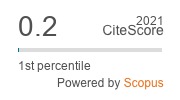Enhancing Data Integrity in Multi-Cloud Storage with Identity-Based Distributed Provable Data Possession
Abstract
Cloud services have gained popularity due to numerous companies offering a wide range of cloud-based solutions tailored to user needs. However, the proliferation of cloud services has brought about an increase in security concerns, such as data breaches and unauthorized data alterations. This paper specifically addresses the issue of data integrity. Provable Data Possession (PDP) schemes, while effective in ensuring data integrity, suffer from a drawback in terms of time overhead, especially when dealing with dynamic data that requires additional processing time. To tackle this problem, this paper explores the utilization of Counting Bloom Filters for data updates, which proves to be a more efficient solution compared to PDP when modifying a portion of data within a simulated environment. The approach yields better results when safeguarding data that experiences alterations within dynamic datasets. Identity-Based Provable Data Possession (PDP) stands as a technique for preserving data integrity in the context of outsourcing data storage to distributed cloud service providers. This technique aims to construct an efficient scheme for distributed cloud storage that supports service scalability and data migration, where multiple cloud service providers collaborate to securely store and manage clients' data. The advent of cloud computing has significantly transformed the computer industry by offering information processing as a service, encompassing functions like storage and computation. In this landscape, data integrity plays a critical role, particularly when clients need to store their data, whether it be images or text, across multiple cloud servers. When clients opt for multi-cloud storage, ensuring distributed storage and integrity checks becomes paramount. To address these concerns, this paper introduces an Identity-Based Distributed Provable Data Possession (ID-DPDP) protocol tailored for multi-cloud storage. Remote data integrity checks play a pivotal role in cloud storage as they empower clients to verify their data's integrity without the need to download the entire dataset. In various application scenarios, clients are compelled to store their data across multiple cloud servers. Simultaneously, the integrity checking protocol must exhibit efficiency to minimize the costs incurred by verifiers.




